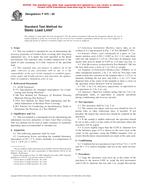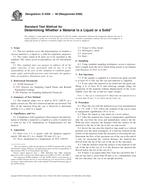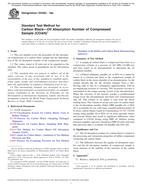Click here to purchase
^SCOPE:
1.1 This test method covers a procedure for temperature and humidity cycling of membrane switches.
1.2 This test method is performed to evaluate the properties of materials used in the construction of membrane switch assemblies as they are influenced by the absorption and diffusion of moisture and moisture vapor. This is an accelerated environmental test, accomplished by the continuous exposure of the test specimen to high relative humidity at an elevated temperature. Absorption of moisture by many materials results in swelling, which destroys their functional utility, causes loss of physical strength, and changes in other mechanical properties. Insulating materials which absorb moisture may suffer degradation of their electrical properties.
1.2.1 Physical changes:
1.2.1.1 Differential contraction or expansion rates or induced strain of dissimilar materials.
1.2.1.2. Cracking of surface coatings.
1.2.1.3 Leaking of sealed compartments.
1.2.1.4 Deformation or fracture of components.
1.2.2 Chemical changes:
1.2.2.1 Separation of constituents.
1.2.2.2 Failure of chemical agent protection.
1.2.3 Electrical changes:
1.2.3.1 Changes in electronic and electrical components.
1.2.3.2 Electronic or mechanical failures due to rapid water of condensate formation.
1.2.3.3 Excessive static electricity.
1.3 This test method is not intended to be a thermal shock procedure; a ramp rate between temperature extremes should not exceed 2°C/min.
1.4 This standard does not purport to address all of the safety concerns, if any, associated with its use. It is the responsibility of the user of this standard to establish appropriate safety and health practices and determine the applicability of regulatory limitations prior to use.
Product Details
- Published:
- 12/01/2007
- Number of Pages:
- 3
- File Size:
- 1 file , 59 KB
- Redline File Size:
- 2 files , 120 KB


